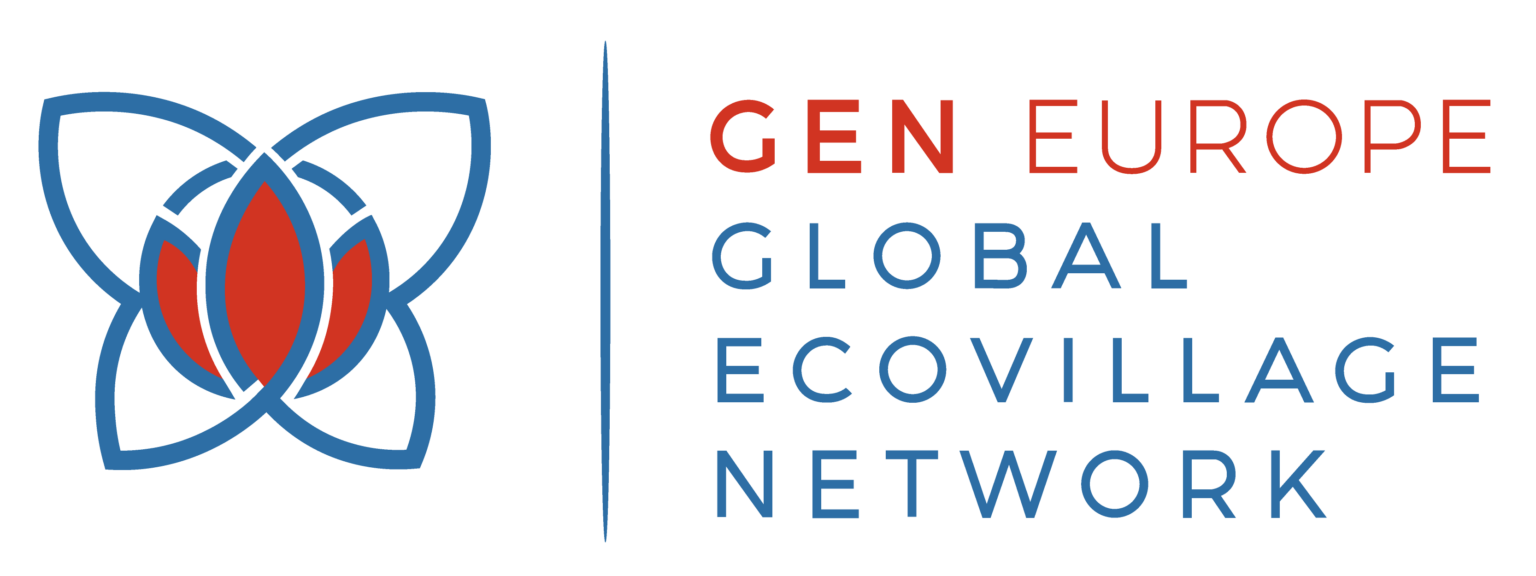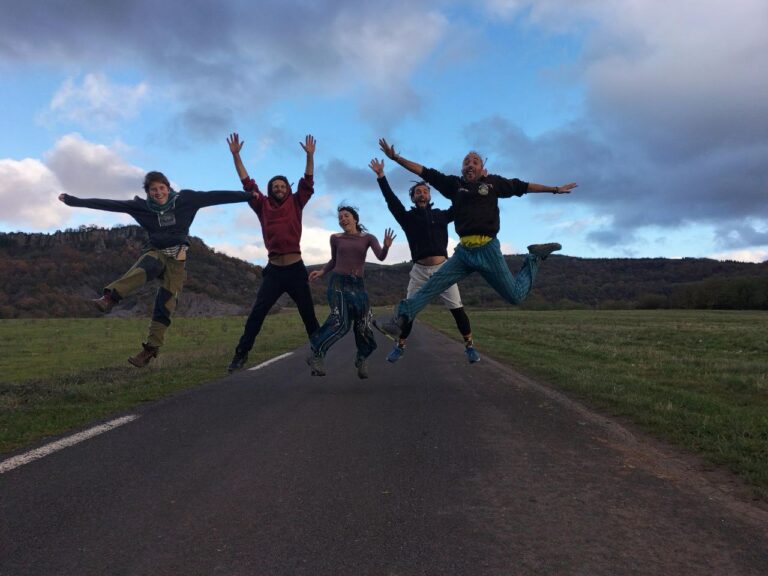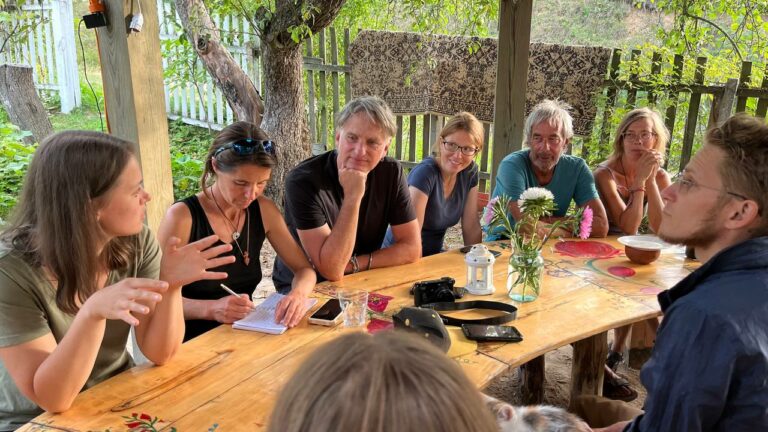Call for participation in international research on ecovillages and the climate crisis 2024
A call is opened for ecovillages and intentional communities in the State of Bavaria, to participate in international research on the climate crisis and extreme events, being carried out in Brazil and Germany. The objective of the research “The sociopolitical face of the climate crisis and extreme events: study with ecovillages in São Paulo and Bavaria” is to investigate how communities and territories are incorporating climate change and the impacts of extreme events into their lifestyle and relations.
Background of the research project:
The scientific research is carried out in the Doctoral Program in Environment and Society at the Center for Environmental Studies and Research [NEPAM] at the State University of Campinas [UNICAMP], in Brazil, since March 2022, headed by the PhD Student Luciana Lima, advised by Dr. Leila da Costa Ferreira and Dr. Ana Maria Heuminski de Ávila. Since the beginning, the project has received public financing from the São Paulo Research Foundation [FAPESP], the second largest funding agency for research and innovation in Brazil [FAPESP Access Link].
Only in the State of São Paulo, nine ecovillages and two catalytic organizations participate in the researcher’s technical visits for interviews, monitoring of socio-environmental and political dynamics, in addition to satellite remote sensing of the ecovillage’s internal and external landscape. In February, the second stage of research began with ecovillages and intentional communities in Bavaria.
In a nine-month sandwich doctorate, the researcher is already based at Augsburg Universität, at the Zentrum für Klimaresilienz, under the technical supervision of Dr. Maria Angela Backhouse, who has long experience in socio-ecological transformation and resilience and climate design in Brazil and in Germany. The moment is to structure field research and contact with communities in Bavaria and catalytic organizations in Europe, to plan visit dates and data collection procedures.
The effects of climate change do not affect everyone equally. The situation worsens where there is low capacity to adapt due to restricted resources, land use and occupation, urbanization and real estate speculation policies, the developmental economy of agribusiness and access to safe and clear information. The locus allows risks, previously intangible and invisible, to materialize into concrete impacts, where humans experience their vulnerabilities and the challenge of adapting and resilience to a planet in metamorphosis.
From the perspective of the impacts of extreme events, Germany has been one of the countries that has suffered them in the European Union, mainly in relation to droughts, heat waves, excessive precipitation with consequent floods and land displacements. Recent studies also indicate the need to reinforce climate adaptation and governance agendas in small German cities, in addition to intensifying the exchange of knowledge and experiences between civil society and research institutes.
Considering this scenario, the investigation aims to analyze not only the context of risks and impacts, but also the conditions for mitigating them and finding means of adaptability and human resilience to collaborate with human groups and territories in strengthening their social, cultural, economic and natural systems. The costs of research and visits will be borne by the project, and the results and products will be shared freely with interested parties and society.
How to get involved?
The open call is an invitation to communities based in the State of Bavaria, as well as organizations that catalyze their movement in Europe, to join this journey of exchanging experiences with Brazilian communities and organizations. For this purpose, the first step is to contact the researcher Luciana Lima, via email l109835@dac.unicamp.br, or by phone +49 177 535 7132, to confirm the intention to participate until the date of February 28th, 2024.
| Bavarian ecovillages: | European catalytic organizations: |
| Gemeinschaft Sulzbrunn, in Sulzberg; Lebenshof Graben, in Dietersburg; Nature Community, in Schönsee; Tribe of Likatien, in Füssen; Schloss Blumenthal, in Aichach; Gemeinschaftsinitiative Chiemgau e.V., in Übersee am Chiemsee. | Global Ecovillage Network [GEN] GEN Europe GEN Deutschland LOES Denmark European Network for Community-Led Initiatives on Climate Change and Sustainability (ECOLISE) Kulturland eG |
Once participation is confirmed, the researcher will schedule a video conference with each community to explain the details of the research, clarify doubts and agree together on a date for the visit and interviews.
Profile and contact of researchers:
Luciana Lima [http://lattes.cnpq.br/9104817328905683] – PhD Student in Environment and Society at NEPAM – UNICAMP. Master in Sustainability and graduated in Law from PUCCAMP. Technologist in Industriekaufmann/Industriekauffrau from AHK/IKK, Germany. Member of the “Circle of Research and Studies in Sustainable Human Settlements” at CASA BRASIL. Lawyer specialized in Land and Environmental Regularization, Third Sector and Communities Law. Contacts: +49 177 535 7132; l109835@dac.unicamp.br.
Leila da Costa Ferreira [http://lattes.cnpq.br/3229457850858581] – Full Professor of Sociology at the Institute of Philosophy and Human Sciences at UNICAMP. Senior researcher at NEPAM-UNICAMP. Representative of UNICAMP at WUN Global Challenges- Adapting to Climate Change and member of the International Sociological Association (ISA) and Associate Faculty of the Earth System Governance Project (Future Earth). Contacts: +55 19 3521-5103; leilacf@unicamp.br.
Ana Maria Heuminski de Ávila [http://lattes.cnpq.br/7582420301693448] – graduated in Meteorology from the Federal University of Pelotas, with a master’s degree in Phytotechnics – Agrometeorology, from UFRS and a doctorate in Agricultural Engineering from UNICAMP. Researcher at the Center for Applied Meteorological and Climate Research in Agriculture (CEPAGRI) at UNICAMP. Contributor to Chapter III of Working Group 2 of the First Report of the Brazilian Panel on Climate Change. Contacts: +55 19 +55 19 3521-2460; amhavila@unicamp.br.
Maria Angela Backhouse [https://www.uni-augsburg.de/de/fakultaet/philsoz/fakultat/umweltsoziologie/team/maria-backhouse/] – Professor of the Chair of Environmental Sociology with a focus on socio-ecological transformation, resilience design and climate at the Climate Resilience Center, conducting research in social and political ecology, climate crisis and resilience, critical agricultural research, and renewable energy. Contacts: +49 (0)821 598-4843; maria.backhouse@uni-a.de.



